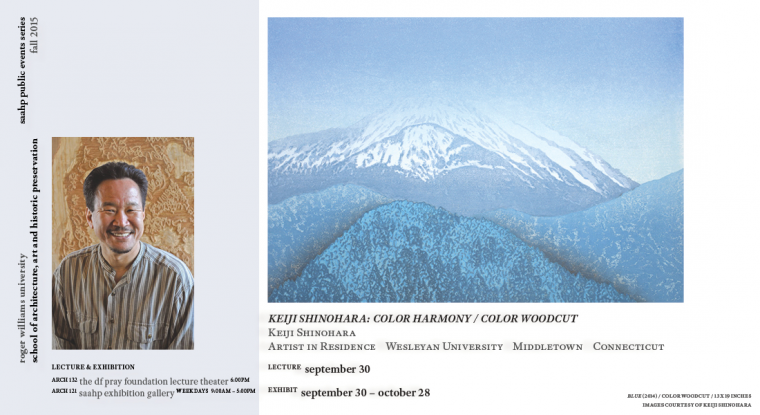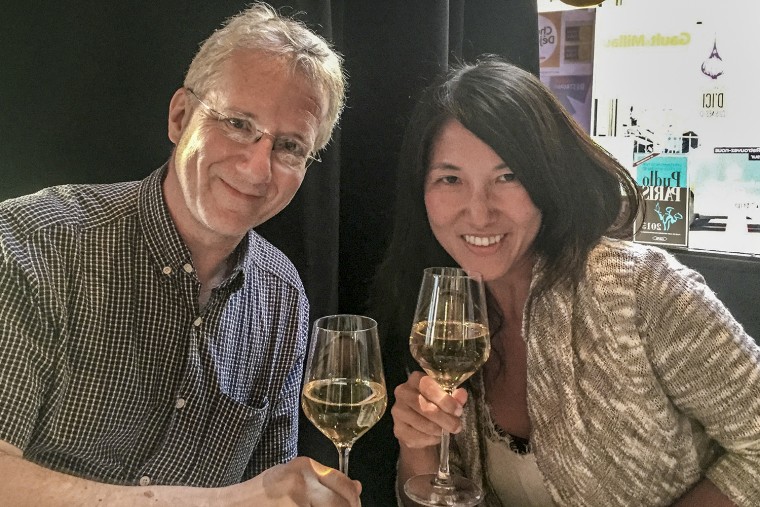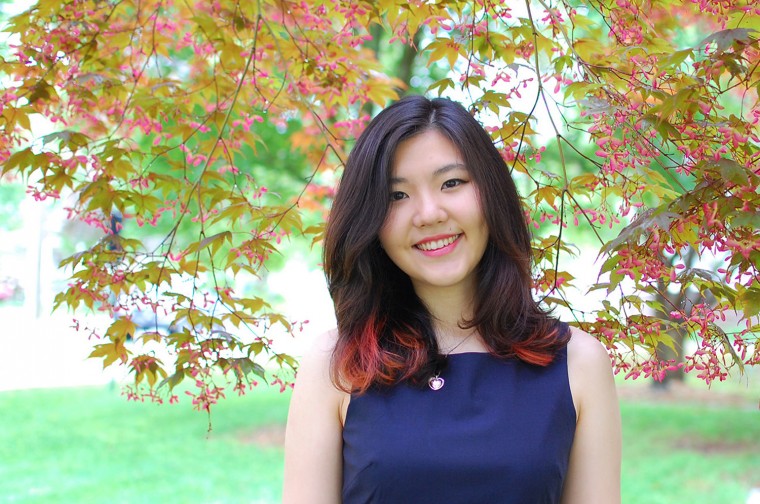Artwork by Keiji Shinohara, artist in residence, is on display at Roger Williams University through Oct. 28. After two separate showings at Odakyu Shinjuku Art Salon in Shinjuku, Tokyo, Japan and Art Zone-Kaguraoka in Kyoto, Japan, Shinohara’s "Color Harmony/ Color Woodcut" exhibit comes to a close at Roger Williams' SAAHP Exhibition Gallery. Shinohara describes his work as “employing ancient methods, while diverging from tradition by experimenting with ink application and different materials to add texture,” thus creating what he calls “a fusion of Japanese aesthetic and Western modernism.” "Color Harmony / Color Woodcut" focuses on his perception of different landscapes. The aim, he says,…
Seventy years later, it is widely believed that President Harry S. Truman made a decision to authorize the bombings of Hiroshima and Nagasaki. The truth, writes William Johnston in the Hartford Courant, is that he never did, at least not explicitly. Johnston, professor of history, professor of East Asian Studies, examines in an op-ed how history has been rewritten surrounding the bombings. In fact, Truman's first explicit decision about atomic bombs was to later order that their further use be stopped without his "express authority." But in summer 1946, Johnston explains, the need arose to write an alternative narrative, as the bomb's…
Two Wesleyan faculty members presented talks at the 14th International Conference on the History of Science in East Asia, held in Paris, July 6-10. On July 7, Miri Nakamura, associate professor of East Asian studies, read from a paper titled "Atomic Maids," which focused on the role of Japanese housekeepers in mystery novels that were indirect criticisms of nuclear issues. On July 9, Bill Johnston, professor of history, professor of East Asian studies, professor of Science in Society, professor of environmental studies, spoke about the changing role of the environment in ideas about disease causation in 19th century Japan. The conference is held every four…
#THISISWHY In this News @ Wesleyan story, we speak with Hyo Jeong (Tina) Jung from the Class of 2015. She is a history major with concentrations in social movements and contemporary history, and an East Asian studies minor. (more…)
Vera Schwarcz, the Mansfield Freeman Professor of East Asian Studies, professor of history, is the author of a new book titled Colors of Veracity: A Quest for Truth in China, and Beyond, published by the University of Hawai'i Press in November 2014. In Colors of Veracity, Schwarcz condenses four decades of teaching and scholarship about China to raise fundamental questions about the nature of truth and history. In vivid prose, she addresses contemporary moral dilemmas with a highly personal sense of ethics and aesthetics. Drawing on classical sources in Hebrew and Chinese (as well as several Greek and Japanese texts), Schwarcz…
Uncover the hidden stories of East Asia’s religion and folklore at a new exhibit, "Not of This World," at the College of East Asian Studies' gallery. To inaugurate the new College of East Asian Studies, students curated this exhibition of the most compelling artworks from the college's collection. "Not Out of This World" is on display Sept. 10-Dec. 5 and features aesthetically pleasing pieces that reveal spiritual worlds filled with love, betrayal and faith. A ghost woman who searches for her husband, an immortal trapped in a peasant’s body, and a wheel that spins prayers are examples of the East Asian artwork displayed that weave the supernatural with mystical elements.…
(more…)
Vera Schwarcz, the Mansfield Freeman Professor of East Asian Studies, professor of history, is the author of Ancestral Intelligence, published by Antrim House Books in 2013. She signed copies of her book and read selected poems at Broad Street Books on July 22. Photos of her book signing are below: (Photos by Eki Ramadhan '16) (more…)
Su Zheng, associate professor of music, associate professor of East Asian studies, spoke in a recent China Daily USA article about the number of African musical artists in China and how their presence is “creating new types of harmony between the two lands.” Zheng starts off by pointing out that “Wherever there are Africans, there is good music - just like wherever there are Chinese, there is good food.” When she discovered that there were no reports on the presence of African music in China, she decided to research the music of the African diaspora herself. The research completed by…
Vera Schwarcz, the Mansfield Freeman Professor of East Asian Studies, professor of history, is the author of Ancestral Intelligence, published by Antrim House Books in 2013. In Ancestral Intelligence, Schwarcz depicts the cultural landscape of contemporary China by creating “renditions” of poems by a mid-20th century dissident poet, Chen Yinke, and by adding a group of her own poems in harmony with Chen Yinke’s. Like his, her poems show a degradation of culture and humanity, in this case through comparison of classic and modern Chinese logographs. In the tragic yet inspiring story of Chen Yinke, Schwarcz finds her own powerful…
Doreen Brown Freeman, who together with her husband, the late Houghton “Buck” Freeman ’43, generously supported Wesleyan and especially the Freeman Asian Scholars Program, died July 12 in Honolulu. The Freeman family, including Buck, Doreen and their son Graeme Freeman ’77, established the Freeman Foundation in 1993 after the death of Buck’s father, Mansfield Freeman, Wesleyan class of 1916, who had contributed greatly to Wesleyan’s East Asian Studies Program. Buck Freeman was chairman of the Freeman Foundation, and Doreen was a co-trustee. They demonstrated a hands-on style of giving that ensured a personal connection with all those receiving foundation support.…





